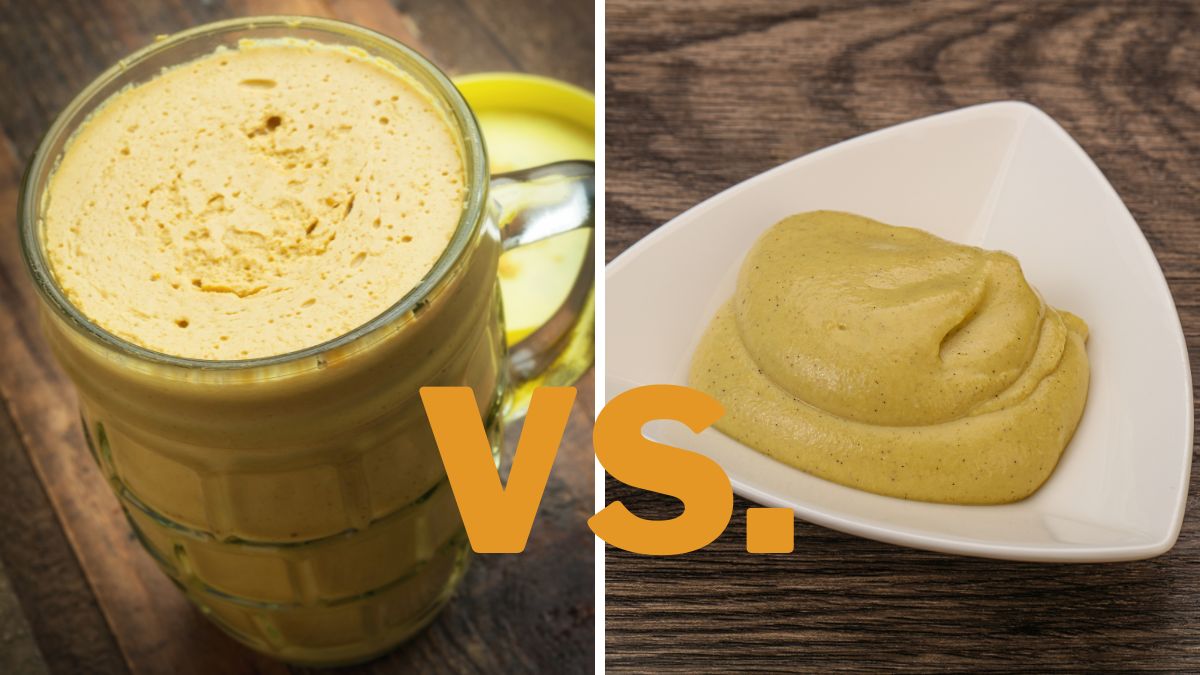German Mustard vs. Dijon: Differences

For me, there’s nothing quite like that spicy, zesty kick of mustard to liven up a sandwich or pretzel. As a condiment connoisseur, I’ve explored many varieties of mustard over the years. Two types that often get confused are German mustard and Dijon mustard. While they may seem similar at first glance, some critical differences in ingredients, taste, appearance, and ideal pairings set them apart. So, what are the differences between German and Dijon mustards?
While German mustard brings the heat with its spicy kick, Dijon has more subtle and complex flavors. German mustard is also darker in color and is used for sausages, while Dijon pairs perfectly with deli meats.
If you’re like me and want the proper mustard for the right meal, read on to become an expert in the German vs. Dijon mustard debate. By the end of this article, you’ll be spreading with confidence.
Differences in Taste and Appearance
German mustard has a spicy, robust flavor from brown and black mustard seeds. It’s usually darker in color, ranging from medium brown to almost black. The seeds are coarsely ground, giving it a hearty, rustic texture.
On the other hand, Dijon mustard is made from white wine and uses white mustard seeds, so it has a tangy, zesty flavor and a pale yellow color. The seeds are finely ground, resulting in a smoother, creamier texture.
German mustard packs some heat, while Dijon has a mild kick and balanced acidity from the wine. Dijon is also a bit sweeter, with subtle herbaceous and fruity notes.
As for looks, German mustard appears coarser and grainier, whereas Dijon has an appealing silky shine.
Whether you prefer the robust, spicy flavor of German mustard or Dijon’s refined, complex tang, both are versatile mustards with a long history and devoted following.
When it comes to packaging, some German mustard brands put it into a glass cup, so you can use it after using up your mustard. How great is this? Here’s what it looks like:
Difference in Ingredients
While both mustards are delicious, some critical differences exist in their ingredients and taste.
German mustard is made from mustard seeds, wine or beer, sugar, and spices. The seeds are usually brown or black mustard, giving them a spicier kick. Moreover, German mustard can also include some additional ingredients, like horseradish.
Dijon mustard uses white or yellow mustard seeds, but its primary liquid is white wine or verjus, the pressed juice of unripe grapes. It also has salt and spices but no sugar, so it tends to be more tangy.
Uses

For hearty sandwiches or sausages like bratwurst, German mustard is my go-to. Its spicy and robust flavor stands up well to these bold ingredients. German mustard, made from mustard seeds, typically contains more seeds than Dijon, giving it a coarser texture and kick of heat.
Dijon mustard has a tangy, vinegar-like flavor that pairs perfectly with deli meats like ham, roast beef, or turkey. Its smooth and creamy texture also works well as a dip for soft pretzels.
When making salad dressings, marinades, or glazes, I usually choose Dijon mustard. Its acidity helps emulsify vinaigrettes and brightens the flavor of meats like chicken or fish. Dijon also mellows when cooked, allowing its flavor to infuse into whatever it’s mixed into. German mustard can become bitter when heated, so I save it for uncooked applications.
I go with German mustard if I’m making a recipe where mustard will be exposed to high heat, such as a mustard-based barbecue sauce. Its spiciness stands up better to cooking than Dijon’s more delicate flavor. German mustard’s heartiness also pairs well with bold flavors prominent in barbecue.
In the end, both mustards have a place in my kitchen. Choosing between German mustard or Dijon depends on how much spice I want and what ingredients they’ll accompany. With the variety of mustards available, there’s one for every use.
So, what is your go-to use for each of these? Give me a combination recommendation in the comments below!
